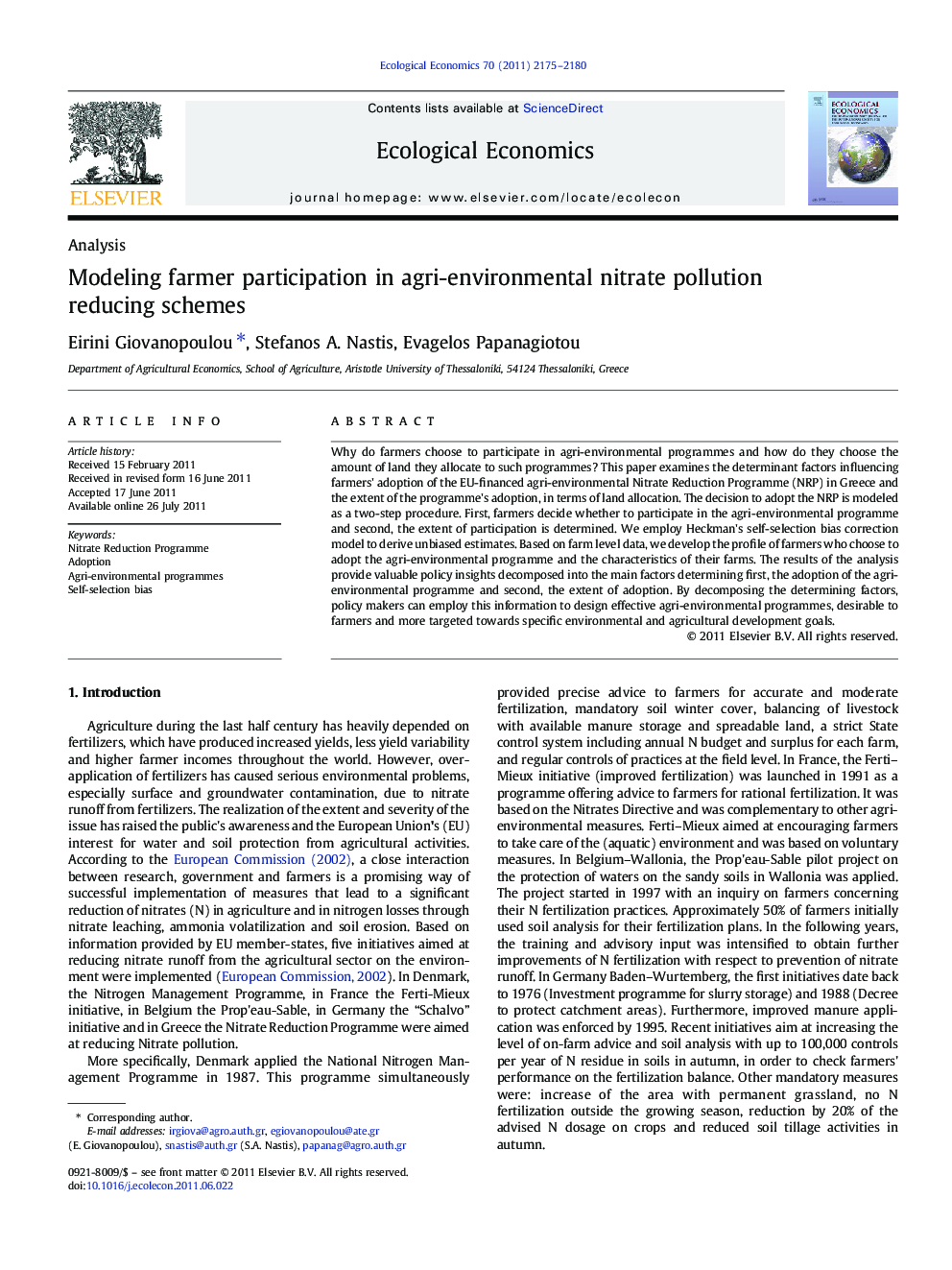| Article ID | Journal | Published Year | Pages | File Type |
|---|---|---|---|---|
| 5050584 | Ecological Economics | 2011 | 6 Pages |
Why do farmers choose to participate in agri-environmental programmes and how do they choose the amount of land they allocate to such programmes? This paper examines the determinant factors influencing farmers' adoption of the EU-financed agri-environmental Nitrate Reduction Programme (NRP) in Greece and the extent of the programme's adoption, in terms of land allocation. The decision to adopt the NRP is modeled as a two-step procedure. First, farmers decide whether to participate in the agri-environmental programme and second, the extent of participation is determined. We employ Heckman's self-selection bias correction model to derive unbiased estimates. Based on farm level data, we develop the profile of farmers who choose to adopt the agri-environmental programme and the characteristics of their farms. The results of the analysis provide valuable policy insights decomposed into the main factors determining first, the adoption of the agri-environmental programme and second, the extent of adoption. By decomposing the determining factors, policy makers can employ this information to design effective agri-environmental programmes, desirable to farmers and more targeted towards specific environmental and agricultural development goals.
⺠The rate and extent of adoption of an agri-environmental programme are examined. ⺠Determining factors that influence adoption are estimated. ⺠Heckman's self-selection model is employed to derive unbiased estimates. ⺠The results provide information to improve the design of more effective programmes.
